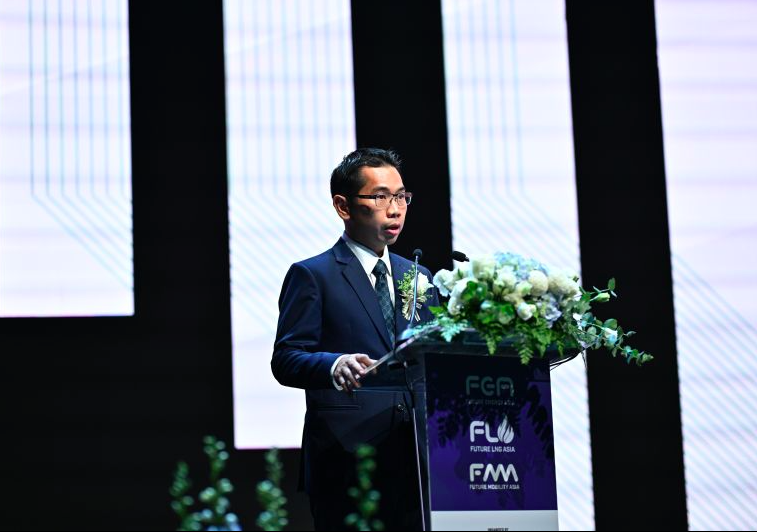Future Energy Asia spotlights ASEAN’s leading role in shaping the global energy landscape with equitable solutions for all
Future Energy Asia & Future Mobility Asia 2024 is underway with more than 22,000 international energy professionals gathering in Bangkok to explore Asia’s contributions to global energy transition and spotlight regional decarbonisation efforts.
The Ministry of Energy of the Kingdom of Thailand officially opened the three-day event on Wednesday as ministers, dignitaries, NECs and IECs converged.
Equitable energy quest
The Future Energy Asia, Future Mobility Asia and Future LNG Asia exhibitions and conferences are co-located alongside ERRA’s 21st Annual Energy Regulators Forum and the ERC (Energy Regulatory Commission of Thailand) Forum.
The opening ceremony placed strong emphasis on the role of the ASEAN region as a leader in shaping the global energy landscape, as well as the importance of ensuring transition to clean energy solutions is fair and equitable by providing energy access to people worldwide.
Landmark regional platform
Co-hosted by PTT Group and the Electricity Generating Authority of Thailand (EGAT), with diamond sponsorship from ADNOC and PTTEP, the dmg events-organised gathering seeks to accelerate the energy transition and foster international cooperation by facilitating vital dialogue.
It also addresses challenges, supports cooperation, and enables exchanges on industry trends, and policy implications for clean energy access.
The combined events are viewed an important milestone for the industry and region, with Southeast Asia anticipated to become the world’s fourth-largest economy by 2030, with energy consumption tripling between 2013 and 2040.
Discussions for change
The three days will focus on addressing challenges posed by the energy security, sustainability, and affordability trilemma, with a framework that emphasises practical outcomes and actionable insights across the energy landscape.
At the Future Energy Asia Strategic Summit, leaders have discussed integration of innovative technologies, such as CCUS and smart grids, for enhanced energy efficiency and sustainability. The importance of tailored policies was highlighted, echoing recent COP28 agreements, and the need to balance sustainable energy with affordability and reliability stressed.
Keynote speaker Nopasit Chaiwanakupt, EVP, Carbon Solutions and Sustainable Growth Group, PTTEP, highlighted Asia as home to about 4.5 billion people - about 60% of the world’s population. As such, achieving carbon neutrality could not be done without Asia, he said, urging more collaboration among world nations and reminding that energy is borderless.
Broad exchanges
First day discussions also covered energy security, net-zero power transition, and methane emissions reduction, highlighting the role of public-private partnerships in fostering a greener Asia.
Concurrently, the Energy Regulators Forum and ERC Forum provided a vital platform for policymakers and industry stakeholders to discuss renewable energy adaptation in ASEAN.
The Future Mobility Asia opening day highlighted Thailand’s leadership in the mobility revolution, driven by commitment to carbon neutrality by 2050, and collaborative efforts to modernise infrastructure and promote sustainability through innovative mobility solutions.
Thai influence in ASEAN region
Thailand’s Deputy Minister of Transport HE Dr Manaporn Charoensri’s keynote emphasised his nation’s aims to lead in ASEAN’s mobility transformation, exemplifying how regional co-operation and technological actions can yield substantive benefits in tackling global challenges.
Future LNG Asia, meanwhile, has addressed LNG’s role in reducing coal dependency and achieving net-zero carbon emission goals amid market challenges, with discussions on market dynamics, decarbonisation, and the impact of shipping disruptions on regional trade.

Driving an era of energy change
Dr Sompop Pattanariyankool, Deputy Permanent Secretary and Thailand’s Minister of Energy, said Future Energy Asia & Future Mobility Asia 2024 demonstrated his nation’s commitment to advancing an energy transition agenda.
“With the involvement of major stakeholders from across the world, we gather to create actionable initiatives and collaborations that will drive us to a low carbon energy future,” he said.
Christopher Hudson, President of dmg events, said the organiser was “privileged to offer a platform for industry professionals to meet, collaborate, and contribute to significant advancements in the energy sector”.
He added: “This event demonstrates our commitment to encouraging meaningful conversation and fostering innovation to speed the global energy transition. Future Energy Asia aims to stimulate positive results, inspire tangible ideas, and pave the road for a sustainable energy future.”
Forum for action
Wuttikorn Stithit, Chief Operating Officer, Upstream Petroleum and Gas Business Group PTT PLC, said: “Amidst a global drive towards decarbonisation, the rapid expansion of renewable energies, and the pivotal role of digital technologies in enhancing our energy frameworks, we have the power to drive meaningful change and leave a lasting legacy of sustainability and prosperity.”
EGAT Governor Thepparat Theppitak revealed how his entity was “at the forefront of integrating cutting-edge technologies and renewable resources” to transform Asia’s energy framework.
He added: “This summit provides a vital platform for sharing advancements and collaborative achievements, highlighting Asia’s proactive role in addressing global energy demands and environmental goals.”





